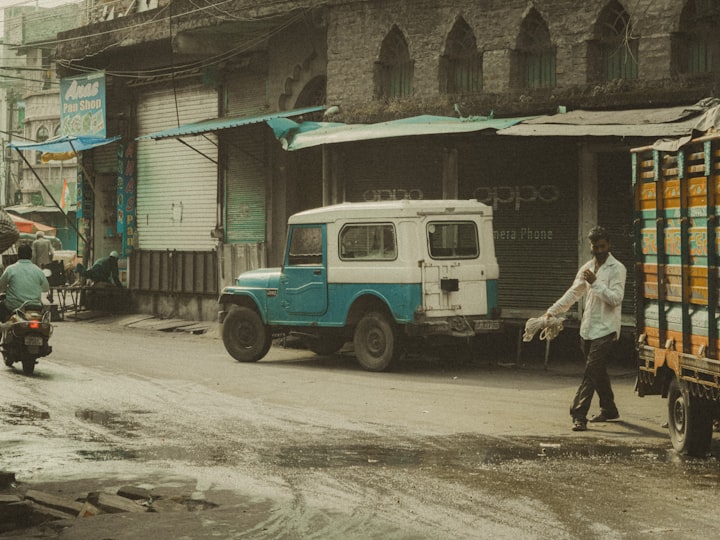The Bhopal Gas Tragedy
The Bhopal gas tragedy, which occurred in 1984 in India, remains one of the world's most devastating industrial disasters. A leak of toxic gases from a pesticide plant resulted in the immediate deaths of thousands of people and long-term health issues for survivors, highlighting the grave consequences of industrial negligence.

In the vibrant city of Bhopal, India, a cloud of darkness descended upon its unsuspecting residents. It was the fateful night of December 2, 1984, when tragedy struck in the form of a deadly gas leak. Union Carbide India Limited, a pesticide plant that had been a source of employment and hope for many, became the epicenter of a catastrophe that would forever scar the lives of thousands.
Among those affected was Rajesh, a young man full of dreams and aspirations. He had grown up in the close-knit community surrounding the plant, where families relied on the meager wages earned within its walls. Rajesh himself had followed in the footsteps of his father, working diligently as a technician, believing that his job would bring prosperity and a better future for his family.
That fateful night, as Rajesh left for his shift, he kissed his wife and young daughter goodbye, unaware of the horror that awaited him. As the clock struck midnight, an invisible menace began seeping into the air, engulfing the city in a toxic embrace. Methyl isocyanate, a deadly gas used in the production of pesticides, escaped from its confines, spreading its deadly tendrils through the surrounding neighborhoods.
Panic and chaos ensued as the gas seared the eyes, burned the lungs, and stole the breath of those unfortunate enough to be caught in its path. Rajesh, trapped within the factory premises, felt the acrid taste of death as he struggled to breathe, his vision clouded by tears and despair. The world around him transformed into a surreal nightmare, where life and death danced in an unforgiving tango.
Outside the factory gates, the scene was equally devastating. Families were torn apart as loved ones succumbed to the poisonous embrace of the gas. Children cried out for their parents, searching desperately in the darkness for their touch. The once-bustling streets were now filled with lifeless bodies, the echoes of anguish haunting the air.
Days turned into weeks as the survivors grappled with the aftermath. The lucky ones who had managed to escape the immediate death sentence of the gas faced a different kind of agony. Their bodies bore the scars of chemical burns, their eyes were forever clouded by the pain of loss and grief. The hospitals overflowed with the injured, their moans of agony a constant reminder of the magnitude of the tragedy.
Rajesh, though physically scarred, emerged as one of the fortunate ones. But the relief he felt was overshadowed by the weight of survivor's guilt. The faces of his colleagues and friends haunted his every waking moment, their memory a relentless torment. The once-promising future he had envisioned for his family had been shattered, replaced by a life marked by grief and uncertainty.
As the years passed, the true extent of the tragedy became painfully apparent. The toxic legacy of the gas leak extended far beyond the immediate aftermath. Survivors, their bodies weakened and their spirits broken, continued to suffer from a myriad of health issues. Birth defects, respiratory problems, and chronic illnesses plagued generations to come, a cruel reminder of the irreversible damage inflicted on their lives.
But amidst the sorrow and despair, a flicker of resilience emerged. The survivors, joined by activists and concerned citizens, refused to let the tragedy be forgotten. They raised their voices, demanding justice for the lives lost and the suffering endured. Their fight for accountability and compensation became a beacon of hope in the face of corporate negligence.
The Bhopal gas tragedy stands as a stark reminder of the catastrophic consequences that arise from a lack of accountability and a disregard for human life. It serves as a testament to the enduring strength of the human spirit, the indomitable will to seek justice and ensure that such a tragedy is never repeated.
Note: The story above is a work of fiction created to illustrate the subject of the Bhopal Gas Tragedy. The characters and events portrayed are fictional, but they reflect the experiences of individuals affected by the tragedy and the immense sorrow and suffering caused by the gas leak.





Comments
There are no comments for this story
Be the first to respond and start the conversation.